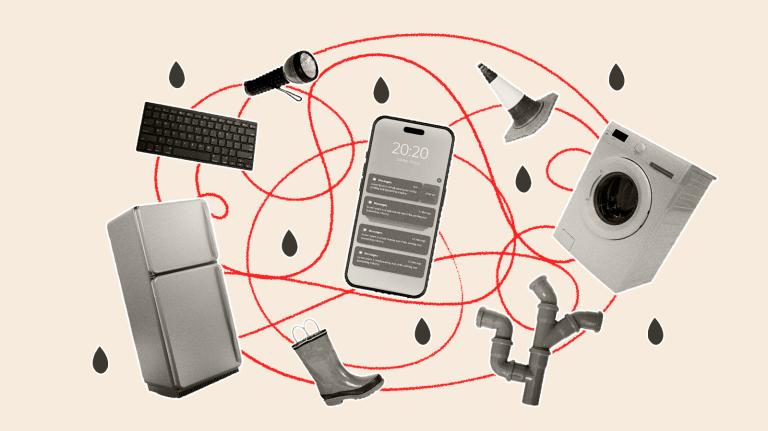
Right on, Ralph.
The complaints continue to pour in:
“Why are you writing columns supporting Ralph Nader? How can you actively aid and abet the election of that dolt Bush? You can think better than that.”
And so does the applause:
“I believe that you will never regret voting on the basis of your conscience, and neither will I.”
On the letters page of Grist, folks are attacking not just me but each other, with gusto:
“Whoever is elected gets to call the shots for the next four years, and I don’t think the environment can take four years of Texas-style environmentalism.”
“Let’s stop always taking the short view. That’s just what Tweedledum and Tweedledee want you to do.”
“George the Shrub will undo all the environmental progress we have made in my lifetime, turn education on its head, and turn the Supreme Court over to the radical religious right. These are outcomes so unacceptably evil that a protest vote for Nader looks ridiculous.”
“People are voting for Gore out of fear, not because they think he will make a good president. Sticking to what we believe is the only way to get real change.”
These embattled folks all want to vote for an honest person rather than a packaged image, for someone who is not sold to the highest bidder, for someone who will fight for the people and the environment. Their anger with each other is mainly anger at the choice they face. Vote for Nader and get Bush. Or vote for Gore and get Gore.
But some people refuse to be squeezed into that box.
The great columnist Molly Ivins, for example, says that Nader “has done more real good for this country than both [major] candidates added together and multiplied.” But she’s from Texas and emphatically does not want to do anything that might help Bush become president. “The lesser of two evils does make a difference.”
So for the short term, she says, if your heart is with Nader, be loudly for Nader. If he gets 15 percent in the polls, he’ll be in the presidential debates, with a chance to show up the two Tweedles. When it comes to voting, she says, if you’re in a state with a certain outcome, like Texas that will go for Dubya or Massachusetts that will go for Gore, you can freely vote for Nader, throw a scare into the Tweedle-parties, and help the Greens get recognition and campaign funds. If you’re in a state where the outcome is close, she says, “why don’t we see how it looks in November?”
The irrepressible Michael Moore has another strategy. In an open letter entitled Bush and Gore Make Me Wanna Ralph, he urges all Gore supporters to vote for Gore. “In fact I insist on it, even if you are just throwing your vote away,” he writes. Rather than trying to get these folks to vote for Nader, Moore wants to mobilize the nation’s largest party — the 55 percent who are normally too disgusted to vote.
“What if you drove down to that stinky gym where the little shell game behind the pretend curtains is taking place, walk in, sign in, take the ballot they hand you, and toss yourselves inside the booth like a political Molotov cocktail?” Moore asks. “You wanna tell me there’s a choice here between two guys who both support NAFTA, WTO, the death penalty, the Cuban embargo, increased Pentagon spending, sleazy HMOs, greedy hospital chains, 250 million guns in our homes, more bombing of Iraq, the rich getting richer and the rest of us declaring bankruptcy? Not me. I’m voting for Ralph Nader. KAAAABOOM!”
In 1996 Bill Clinton won with 47 million votes, while 100 million eligible voters stayed home. They could “make history by putting a true American hero at 1600 Pennsylvania Avenue” without taking a single vote away from Gore.” Moore writes.
For the longer term, why should we put up with an electoral system that gives us nothing but choices between lesser evils? There are far better alternatives. One is the proportional parliamentary system practiced in most democracies. I see people stick up their noses at it, but I never understand why; it allows a fairer hearing to a wider spectrum of views than does our winner-take-all system.
Another intriguing possibility is the instant runoff, practiced in Ireland and Australia. In this system you mark your ballot with your first, second, and third choice. In the first round only first-choice votes are counted. If no one wins a majority, the lowest vote-getter is eliminated. Those whose first choice was the eliminated candidate automatically weigh in with their second choice.
That would take away the agony of voting for someone you despise just to keep someone you despise even more from winning. It would be even better combined with a feature of Russian elections, where there is always a choice called “none of the above.” If a majority of voters choose “none of the above,” all candidates are disqualified. The parties must keep trying until they come up with a slate of possibilities that the people can actually stomach. (Learn more about alternative voting systems from the Center for Voting and Democracy.)
Of course no president from either Tweedle-party would think of leading a charge toward a genuine democracy. You know who would? Here’s a hint: The Green Party already uses instant runoffs for its presidential nominations.

